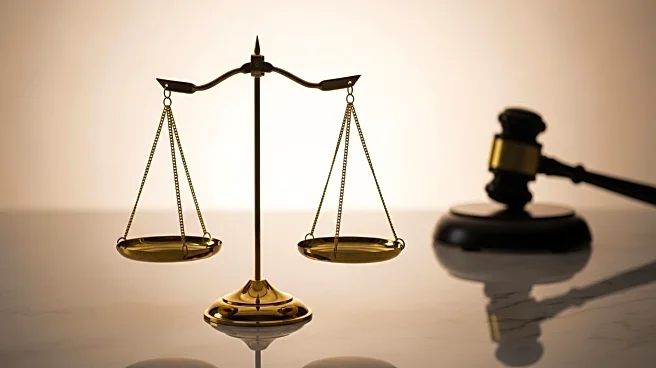What's Happening?
The Securities and Exchange Commission (SEC) has decided to drop civil enforcement cases against three individuals who were previously granted clemency by President Trump. These cases, initiated before Trump took office, involved Devon Archer, Trevor Milton, and Carlos Watson, all convicted of white-collar frauds. Archer was involved in a scheme targeting pension funds and a Native American tribal entity, with nearly $60 million in penalties. Milton was found guilty of misleading investors about his electric truck company, Nikola, with recommended penalties exceeding $660 million. Watson defrauded investors in Ozy Media, facing penalties of nearly $97 million. The SEC's decision means these individuals will not have to pay additional civil penalties or face restrictions on working in securities-related positions, although private civil lawsuits from victims remain a possibility.
Why It's Important?
The SEC's decision to drop these cases highlights the significant influence of presidential clemency on legal and financial accountability. This move could have substantial implications for victims of the frauds, who may now find it more challenging to recover their losses. The decision also raises questions about the use of presidential powers to aid affluent allies, potentially undermining public trust in the justice system. The lack of additional penalties or restrictions could set a precedent for future cases involving high-profile individuals, affecting the SEC's ability to enforce securities laws effectively.
What's Next?
While the SEC has dropped its cases, the possibility of private civil lawsuits remains open for the victims seeking restitution. This could lead to prolonged legal battles as victims attempt to recover their losses through the civil court system. Additionally, the decision may prompt discussions among lawmakers and regulators about the balance of power in granting clemency and its impact on justice and accountability. Stakeholders in the financial and legal sectors may also push for reforms to prevent similar situations in the future.
Beyond the Headlines
The SEC's decision could have broader implications for the perception of justice and fairness in the U.S. legal system. It raises ethical questions about the use of presidential clemency and its potential to favor wealthy or influential individuals. This development may also influence public opinion on the role of government agencies in holding individuals accountable for financial crimes, potentially leading to calls for increased transparency and oversight in the clemency process.









